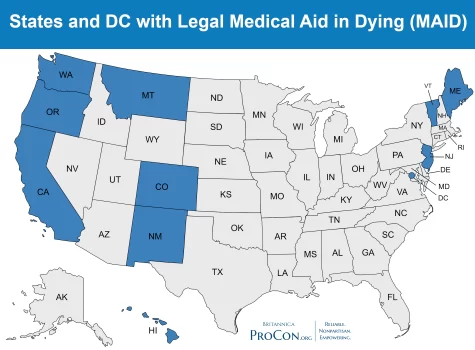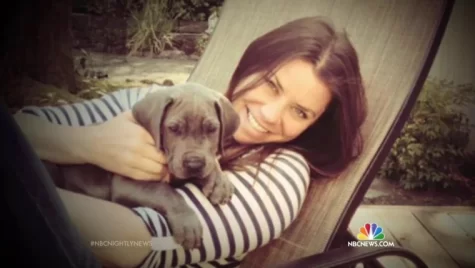
Sophie Rapeepat | Head Editor
September 5, 2023
Brittany Maynard loved life. At 22 years old, she graduated from the University of Berkeley with a bachelor’s degree in psychology. At 26, she earned her master’s in education and married the love of her life. At 28, she spent her days traveling the world as an adrenaline junkie, often mountain climbing and bungee jumping as she checked adventures off her bucket list.
And at age 29, she was dead.
Diagnosed with a grade 4 Astrocytoma, Brittany was given six months to live. The cancer had infiltrated her brain, wracking her decaying body with excruciating headaches, seizures, and frequent episodes of vomiting. But it wasn’t the aggressive tumor that killed her directly; rather, Brittany chose to end her life early by physician-assisted suicide.

Assisted death is a relatively new and controversial option. Competent, terminally ill patients are euthanized voluntarily by doctors to receive death with dignity on their terms. But many question the ethics behind it. Does this form of suicide violate the sacredness of life, or is it ultimately a humane act of compassion to end prolonged agony?
The Hippocratic Oath dates back to 400 BC. Stemming from ancient Greece, the oath requires physicians to swear four main principles that uphold ethical standards in practicing medicine. Among them, is the prohibition of euthanasia which states:
“I will not give a lethal drug to anyone if I am asked, nor will I advise such a plan.”
This promise is necessary. It ensures doctors can be trusted to keep the best interests of their patients at heart. But to what extent does their “best interest” correlate with being forced to live, and at what point does the patient no longer get to make that choice for themselves?
Imagine your life confined to a hospital bed. Each breath weighs on your chest as antiseptic chemicals overpower your senses and a never-ending pain torments you with each weak beat of your failing heart. You can’t live your life, but you also can’t die. Instead, your only option is to wait, restlessly knowing it is only a matter of time until your body succumbs to death and you can finally be free of the torture.
To many, this exercise in imagination is a brutal reality. Terminal illnesses turn bodies into prisons, trapping people in a hellish cycle of anguish and depression. In cases like this, the Hippocratic Oath contradicts ethical virtues. Autonomy recognizes the right of individuals to make decisions about their personal lives. This includes the ability to refuse medical treatment; but what of the right to use medicine to end their lives?
Most everyone would agree that suicide should not be supported in society. But another key cornerstone of practicing medicine is compassion and the responsibility of doctors to alleviate suffering. It is an entirely different conundrum to consider when the patient is mentally ill and mental health services can be offered as treatment; however, those who suffer day by day with no hope of recovery deserve the option of a dignified release.
Senior Waylon Davis agreed with the idea of death with dignity, and explained how “doctors end suffering. Period. The method in which it is done is up to the terminally ill patient, whether it be through treatment or a merciful death.”
However, many disagree, and consider mercy killing equivalent to murder. In the 1994 case of Dr. Jack Kevorkian, the state of Michigan found him guilty of second-degree murder for lethally injecting 52-year-old Thomas Youk, a terminally ill patient with amyotrophic lateral sclerosis (ALS). The doctor served over eight years in prison but quickly became an advocate for the Death with Dignity movement.
Today, medically assisted suicide is legal in eleven states, and countless organizations have emerged advocating for people’s rights to autonomy. “The burden of choice is on the patient. We all deserve to make that choice for ourselves at the end of our lives,” said junior Xandon Reid.
There is no right answer to the ethical conundrum of physician-assisted suicides. Each individual’s values will differ, but we can all agree that multiple determining factors must be taken into consideration when finding the balance between the sacredness of life, and the freedom of choice.

Leave a Reply